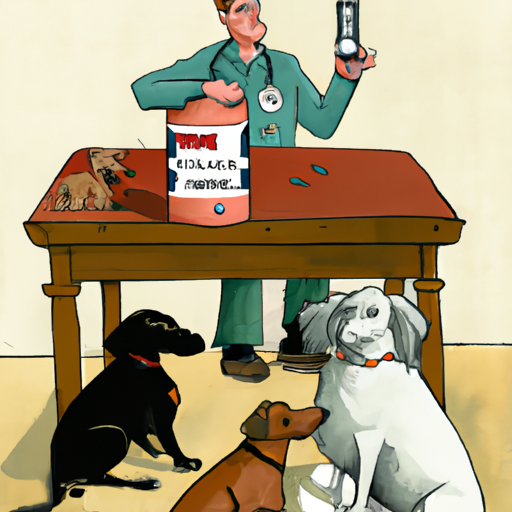As a caregiver, you’re probably well aware that taking care of a pet is similar to taking care of a child. You’re responsible for their physical health, mental well-being, dietary needs, and so much more. It’s not an easy task, but it’s one you undertake with love and dedication. One of the challenges in pet care is dealing with health issues that require medication. One such medication that veterinarians often prescribe for dogs is trazodone. This guide will cover everything you need to know about the appropriate dosage of trazodone for dogs, its uses, side effects, and more.
- What is Trazodone?
- How Many mg of Trazodone for Dogs?
- Uses of Trazodone in Dogs
- Side Effects of Trazodone
- Precautions
-
Frequently Asked Questions
-
Trazodone is a medication commonly used in dogs.
- The dosage of trazodone for dogs depends on the dog’s weight and the condition being treated.
- Trazodone is primarily used for behavioral issues in dogs.
- As with any medication, trazodone has potential side effects.
- Always consult a veterinarian before administering trazodone to your dog.
What is Trazodone?
Trazodone is a prescription medication that’s primarily used as an antidepressant in humans. However, it’s also used in veterinary medicine to treat behavioral issues in dogs, such as separation anxiety and other anxiety-related conditions. It works by increasing the levels of serotonin in the dog’s brain, which helps to stabilize their mood. Here’s an informative article that goes into more detail about the uses of trazodone in dogs.
How Many mg of Trazodone for Dogs?
Determining the correct dosage of trazodone for your dog is crucial. Generally, the dosage ranges from 2.5 mg to 3.5 mg per pound of the dog’s weight, given every 12 to 24 hours as needed. However, the exact dose can vary based on the dog’s health condition and the severity of their symptoms. It’s important to note that you should always consult with a veterinarian before administering trazodone to your dog.
Here’s a quick reference table for trazodone dosage:
| Weight of Dog | Dosage |
|---|---|
| 10 lbs | 25-35 mg |
| 20 lbs | 50-70 mg |
| 30 lbs | 75-105 mg |
| 40 lbs | 100-140 mg |
| 50 lbs | 125-175 mg |
| 60 lbs | 150-210 mg |
| 70 lbs | 175-245 mg |
| 80 lbs | 200-280 mg |
Uses of Trazodone in Dogs
Trazodone is most commonly used in dogs to treat behavioral issues. These can include separation anxiety, fear of loud noises (like thunderstorms or fireworks), and other anxiety-related conditions. It’s also used to help dogs calm down before a veterinary or grooming visit.
There are many resources available that provide further detail on this topic. For instance, this article discusses the benefits and potential risks of using trazodone to manage anxiety in dogs.
Side Effects of Trazodone
As with any medication, trazodone can have side effects. These may include sedation, lethargy, vomiting, diarrhea, panting, restlessness, or changes in appetite. It’s crucial to monitor your dog’s behavior and health after administering trazodone, and communicate any concerns to your veterinarian immediately.
For more information on various health topics related to your pets, you can visit onetopdog.com. Here are a few relevant articles:
- How to Manage Anxiety in Dogs
- Tips for Grooming Your Dog at Home
- Understanding Your Dog’s Dietary Needs
Precautions
Before administering trazodone, it’s important to inform your veterinarian about any other medications or dietary supplements your dog is taking. Certain drugs may interact with trazodone, potentially causing adverse effects.
Frequently Asked Questions
-
Can I give my dog trazodone daily?
The frequency of trazodone administration depends on the condition being treated and the dog’s response to the medication. It could be given daily or only as needed. Always follow your veterinarian’s instructions. -
Is trazodone safe for all dogs?
While trazodone is generally safe for use in dogs, it may not be suitable for dogs with certain health conditions like liver or kidney disease, or dogs that are pregnant or nursing. Always consult your vet before starting any new medication. -
What should I do if I suspect an overdose?
If you suspect your dog has consumed too much trazodone, seek immediate veterinary attention.
Remember, medication alone is not a solution to your dog’s behavioral problems. A comprehensive approach, including behavior modification and environmental changes, is essential to ensure your furry friend’s health and happiness.



